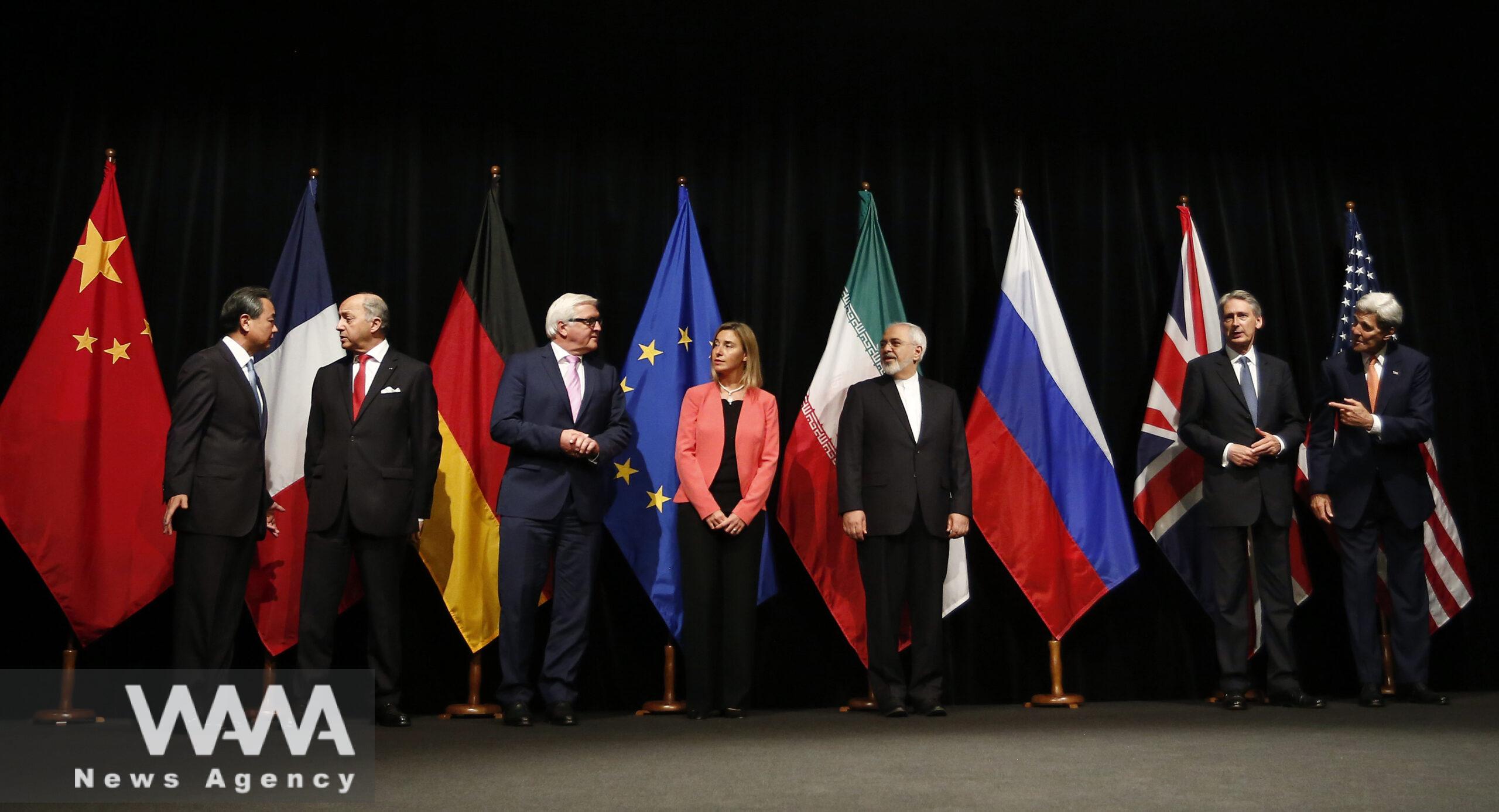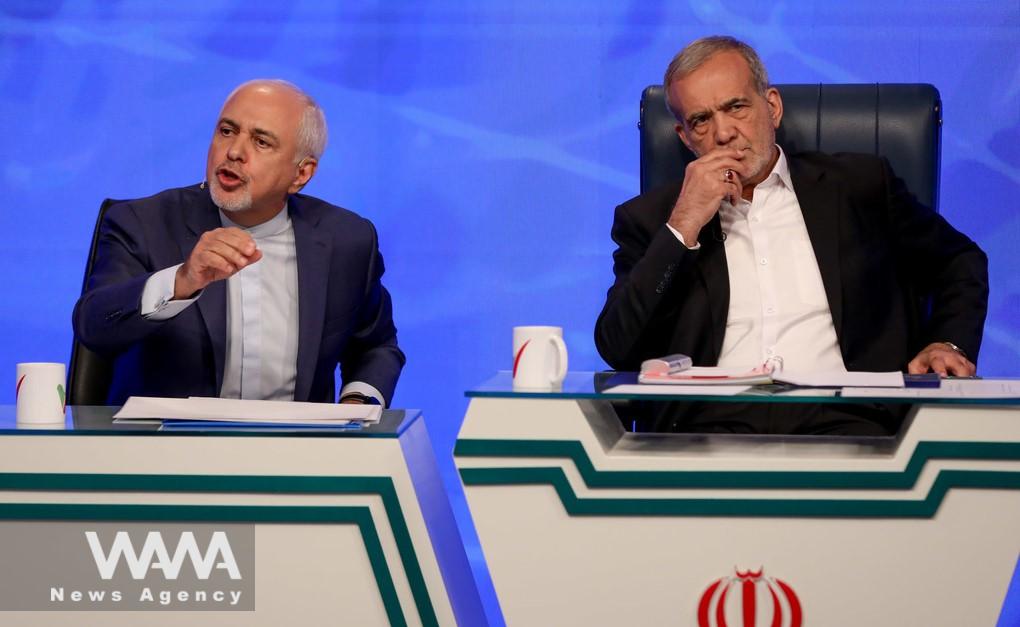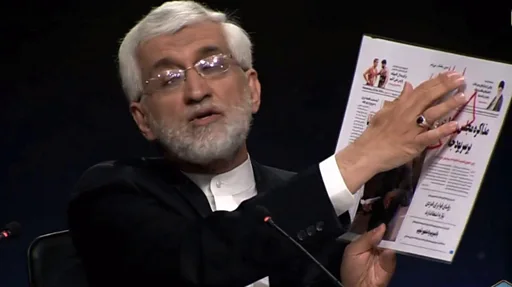A Chess Game Between Iran and the West Amid Political Changes
WANA (July 04) – During the second round of presidential debates, Pezeshkian addressed his political rival, stating, “You did exactly what Israel wanted, aiming to exit the JCPOA.”
The electoral debates and the pivotal choices facing the Iranian people have once again brought the controversial and ongoing JCPOA discussions to the forefront, becoming central to the debates and even the candidates’ campaigns.
Reformists accuse their rivals of opposing the JCPOA, while conservatives emphasize that maintaining the JCPOA is crucial for preserving Iran’s status and power.
The JCPOA negotiations and the sanctions imposed on Iran are among the most complex and sensitive issues in international relations. Since the beginning of these negotiations, the goals and motivations of both parties have been closely scrutinized.
Iran seeks to lift sanctions and return to the global financial system. At the same time, Western countries and their partners aim to control Iran’s military capabilities and limit the influence of its proxy forces.

WANA- Iran Talks Vienna
Reasons for Sanctions and JCPOA Negotiations
From Iran’s perspective, lifting sanctions and rejoining the global financial and economic system was the primary goal. Iran hoped to reclaim billions of dollars of frozen assets and improve its economic situation.
Conversely, Western countries sought to control Iran’s military arsenal and limit the activities of its proxy forces. Reducing military tensions was also a significant aim of these negotiations. Iran’s strategic geographical position and its impact on energy prices are crucial to the global economy.
Any military tension could severely impact inflation and economic indicators in Western countries. Thus, both sides concluded that moving towards negotiations and agreements was necessary.
Different Political Approaches to Negotiations
Some believe that representatives of various factions, including reformists and conservatives, have different negotiation approaches. However, both sides recognize the necessity of negotiations, though their methods differ.
For example, during Iran’s previous administration under President Raisi, despite the government, parliament, and judiciary being dominated by conservative and revolutionary forces, they moved towards an agreement to revive the negotiations. Unfortunately, at some point, this agreement fell apart and never returned to normal.
Events affecting President Raisi also caused the talks to be considered void for the time being. One factor delaying the JCPOA revival during Raisi’s administration was the onset of the Ukraine war. Ideas such as the “cold winter of Europe” influenced this decision, with Iran hoping to gain more concessions by holding off and increasing pressure.
Although this decision aimed to achieve more significant benefits, it delayed the agreement’s revival.

Role of Reformist Politicians in Negotiations
In the complex scene of JCPOA negotiations, the presence of reformist politicians can significantly impact the negotiations. With more flexible views and a willingness to engage with the international community, reformist politicians are likelier to lead talks towards successful agreements.
However, whether their diplomatic methods will benefit Iran or lead to frustration and loss of international standing remains debatable.
Another noteworthy point, considering the upcoming elections, is that despite Pezeshkian repeatedly distancing himself from Rouhani, he is aligned with Zarif, a key figure in Rouhani’s administration, as a potential foreign minister in Pezeshkian’s government. Does Pezeshkian’s administration view Zarif as knowledgeable in diplomacy, or are they merely leveraging his fame?
Role of Conservatives in Negotiations
While reformists favor agreements and negotiations, conservatives have taken firmer stances on the JCPOA for different reasons. Conservatives believe Iran’s international position should not be overshadowed by agreements that might jeopardize national interests.
They argue that Iran should not continuously concede without receiving significant concessions, as this could reduce Iran’s credibility and power on the international stage.
Conservatives seek balanced and reciprocal agreements that preserve Iran’s position and power in the world. They emphasize that any agreement must ensure Iran’s national interests and not require Iran to withdraw from its strategic positions without gaining tangible benefits.

WANA – Jalii in debates
Critical Role of Governing Systems
Despite Iran’s adherence to the initial JCPOA agreements, as acknowledged by American officials, the U.S. withdrew from the agreements and did not fulfill its commitments.
This issue highlights that significant decisions regarding the JCPOA and sanctions depend on the ruling political systems in Iran, the U.S., and their Western partners, with governments not being the ultimate and decisive authorities.
These systems must recognize that escalating tensions only increase costs, and they must move towards managing disputes. Otherwise, significant changes in international relations will not occur, and the issues will persist.
Changing Iran-U.S. relations is not easy and takes time. The costs of current policies for both sides are very high, and there is deep distrust between them. Consequently, managing disputes and reducing tensions should be prioritized.
Iran cannot retreat from its defensive issues, and Western countries cannot ignore their concerns about Iran’s missile development. Both sides have concluded that the disputes cannot be resolved but must be managed.
In conclusion, the difference between governments and political parties will only affect the execution of negotiations and diplomatic approaches.
The decision to continue or halt talks is part of the broader policies of both countries, and changes in governments alone cannot determine the course of these negotiations. Decisions regarding the JCPOA and related negotiations are made at the macro level by the ruling systems of Iran, the U.S., and the European Union, with governments only influencing how these decisions are implemented.
The question remains: which faction’s approach will secure a better future for Iran in the international arena and ensure the country’s sustained power?
By WANA writer: H. Hejazi












